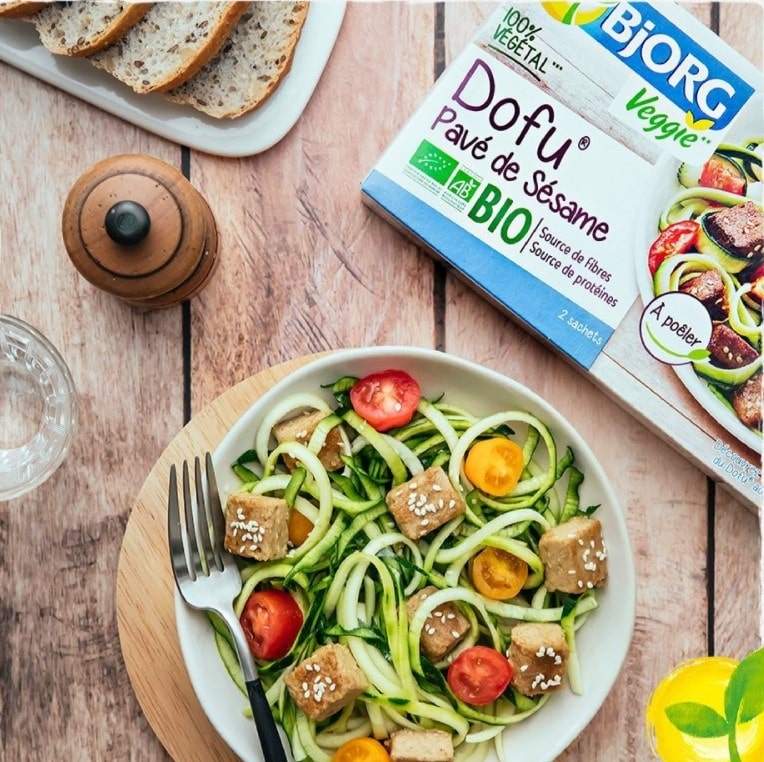The Bjorg brand, which was founded near Lyon in 1970, was acquired by a Dutch group in 2000. Twenty years later, it has become French once again.
The Bjorg brand, which was founded near Lyon thirty years ago, has come back to its French roots. The brand’s parent company, Wessanen, which was rechristened Ecotone in 2020, has established its headquarters in Saint Genis Laval (Rhône). This is hardly an everyday occurrence: In the year 2000, Bjorg – a French leader in organic-food production and distribution – was sold to a European leader in organic foods, the Dutch company Wessanen. Listed on the Amsterdam stock exchange, the group has continued to make new acquisitions, and now counts nearly two dozen brands. Some, like Bjorg, Alter Eco and Clipper, are sold in conventional supermarkets, and others, like Bonneterre and Abbot Kinney’s, can only be found in specialty shops.
In 2019, the group flaunted a healthy €625 million in revenue, owned nine plants in Europe (in France, Italy, the United Kingdom, Spain and Germany) and employed nearly 1,500 people. At that point, the French private-equity firm PAI acquired 62% of the company’s capital. They formed a consortium with the largest minority shareholder – the American individual investor Charles Erik Jobson, who held one quarter of the capital – to take over the company.
A year later, the decision was made to bring the firm’s headquarters back to France, where the Bjorg brand was born.
“We already had our expertise and innovation centers here, and our sales level is currently €400 million in France. So it makes perfect sense for us to relocate here,”
Christophe Barnouin, the CEO of the group, whose name was changed to Ecotone in 2020, explains.
The same year, the firm became Europe’s first multi-national to earn B Corp certification, the most demanding RSE label. The group has also made an ambitious commitment to biodiversity and to developing plant-driven food.
“We want to build an alternative food model in France and Europe. We are going to grow the share of vegetarian products to 95% of our revenue, and organic products’ share to 90%,”
Christophe Barnouin informs us. “To stimulate biodiversity in people’s plates, we guarantee that two-thirds of our products will not contain any of the nine over-consumed plants that over 65% of the world’s diet is based on (wheat, rice, corn, soy bean, palm oil, etc.).”
More information about agri-food industry in our news!
